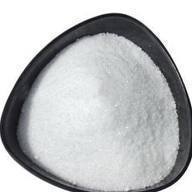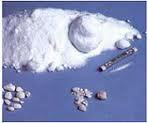Thiamine Mononitrate
Product Details:
- Heavy Metal (%) Not Available
- Shelf Life 4 Years
- Molecular Weight 327.36 Grams (g)
- Molecular Formula C12H17N5O4S
- Solubility FREELY SOLUBLE IN WATER, SOLUBLE IN GLYCEROL,SLIGHTLY SOLUBLE IN ETHANOL.(96%);PRACTICALLY INSOULBLE IN HEPTANE
- Boiling point not available
- Ph Level 2.7 TO 3.3
- Click to View more
Thiamine Mononitrate Price And Quantity
- 25kgs Kilograms
- 2100 INR/Kilograms
- 2000.00 - 2200.00 INR/Kilograms
Thiamine Mononitrate Product Specifications
- Powder
- WHITE CRYSTALLINE POWDER
- 731
- C12H17N5O4S
- People take thiamine for conditions related to low levels of thiamine (thiamine deficiency syndromes), including beriberi and inflammation of the nerves (neuritis) associated with pellagra or pregnancy. Thiamine is also used for digestive problems including poor appetite, ulcerative colitis, and ongoing diarrhea
- not available
- not available
- Medicine Grade
- FREELY SOLUBLE IN WATER, SOLUBLE IN GLYCEROL,SLIGHTLY SOLUBLE IN ETHANOL.(96%);PRACTICALLY INSOULBLE IN HEPTANE
- 196-200
- 99 percent
- Other
- Not Available
- 4 Years
- 2.7 TO 3.3
- C12H17N5O4S
- Pharmaceutical Intermediates
- C12H17N5O4S
- Thiamine Mononitrate
- 327.36 Grams (g)
- Other
- 532-43-4
- Room Temperature
- NOT MORE THAN 80 MESH
Thiamine Mononitrate Trade Information
- Mumbai port
- Letter of Credit (L/C) Letter of Credit at Sight (Sight L/C)
- 100 Kilograms Per Day
- 7 Days
- Yes
- Free samples are available
- DRUM PACKING
- Australia Eastern Europe Western Europe Africa Central America Middle East South America Asia North America
- All India
- ISO,GMP
Product Description
Thiamine Mononitrate is a pure and effective product that is exported to European, African, CIS and many other countries. Among vitamins, thiamine is commonly referred to as vitamin B1. You can find vitamin B1 in a wide variety of foods including yeast, cereal grains, beans, nuts, and meat. Many vitamin B complex products contain vitamin B6 together with other B vitamins. A healthy nervous system and cardiovascular system are maintained through vitamin B1. Some foods are processed with it to preserve nutrients. On your cracker package, you will find thiamine mononitrate for good reason. This prevents complications in the stomach, nervous system, brain, muscles, heart, intestines, and heart.
- CAS No: 532-43-4
- Molecular Weight: 327.36
- Molecular Formula: C12H17N5O4S
- Melting Point: 248-250 °
- Appearance: White crystal powder
- Assay: 98.0 ~102.0%
- Solubility: Soluble in water and insoluble in alcohol
- Purity: 99.9%.
How does it work :
- Vitamin B1 plays a crucial role in maintaining healthy nervous and cardiovascular systems. The purpose of adding it is to maintain the nutrient content of certain foods during processing. Our bodies require thiamine to properly utilize carbohydrates. Additionally, it keeps nerves functioning properly. It is effective for the following
- Cataracts. People who consume high amounts of thiamine in their diet are less likely to develop cataracts.
- Kidney disease in people with diabetes. People with type 2 diabetes who take thiamine at high doses (300 mg daily) have lower levels of albumin in their urine. A high level of albumin in the urine indicates kidney damage.
- Painful menstruation (dysmenorrhea). Teenage girls and young women are reported to have less menstrual pain when given thiamine.
Dosage of usage :
- You will need different amounts of thiamine based on your needs and whether a doctor has prescribed it.
- Mild thiamine deficiency - the usual dose is between 25mg and 100mg, taken once a day.
- Severe thiamine deficiency - the usual dose is 100mg, taken 2 to 3 times a day.
Side effects :
- Side effects of thiamine include:
- A severe allergic reaction, fast swelling of the skin, itching, hives, fluid in the lungs, weakness, skin discoloration, sweating, restlessness, tightness of the throat, nausea, etc.
Warnings and precautions while using this product:
It contains thiamine. It should not be taken by patients with an allergy to thiamine or any other ingredient contained in this drug. Make sure children cannot reach the product. Contact a Poison Control Center if you suspect an overdose or seek medical attention.
Cautions :
- In pregnancy (overdosing on a daily basis)
- Acute thiamine deficiency has been reported with dextrose administration; use caution if thiamine status is unclear
- Hypersensitivity reactions reported after repeated parenteral doses
- Aluminum may be present in some parenteral production; patients with impaired kidney (renal) function should use caution.
- When patients are diagnosed with thiamin deficiency, they should be evaluated for additional vitamin deficiencies; single vitamin deficiencies are rare.

Price:
- 50
- 100
- 200
- 250
- 500
- 1000+










 : nilesh.sheth70
: nilesh.sheth70
